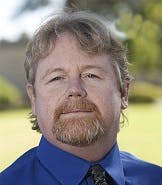It’s a snow day! Who gets paid in your dental practice?
Punxsutawney Phil saw his shadow on Groundhog Day last Thursday. So for those who follow such news, many areas of the country are bracing for more winter weather. What do snow days mean for the pay practices of dental offices forced to close during bad weather?
Remember the joy that snow day announcements brought when you were a kid? Things changed when you entered the work world, and for many dentists and practice managers, that joy is in sharp contrast to the annoyance that accompanies a forecast for snow. You will either have to drive to work in that mess (and hope your employees and patients make it in too), or deal with a rescheduling nightmare. Either way, it’s important to know how to handle the issue of inclement weather and employee pay.
CEDR’s advisors are often asked about compensating employees when the practice is closed or employees can’t report to work due to inclement weather. And it’s not just snowstorms that cause the trouble. Depending on location and time of year, some offices have to contend with ice, floods, hurricanes, tornadoes, and more. No matter the situation, the HR problems are exactly the same.
What determines whether employees should be paid for building snowmen while the practice is closed?What if the practice opens late, or closes early—do they get a full day’s pay? What about exempt employees—are the rules different? Can you require that employees use vacation time or PTO for weather-related closures or absences? The answers are found in both federal and state law, and they do vary depending upon the classification of the employee.
Non-exempt employees: Not paid if notified in advance
Per the Federal Fair Labor Standards Act (FLSA), non-exempt employees are paid for hours actually worked. If your office closes due to inclement weather, as long as you notify your employees well in advance of reporting for duty, non-exempt employees do not have to be paid for hours not worked. However, they may use PTO. Similarly, if your practice opens late due to inclement weather, but you’ve notified employees in advance, non-exempt employees only need to be paid for hours worked that day.
Yes, there is a reason I mentioned “notifying in advance.” Despite the rules governing how non-exempt employees are paid, a few states also have laws mandating “report-in” or “reporting time” pay. This applies if the practice decides to close and send employees home after they’ve arrived at work for the day. So if someone is already at work or on the way and you then decide to close, you could have to pay a certain legally-mandated minimum number of hours for the day, depending on your state.
But there’s one final possibility here. What if the practice is open on a snowy or otherwise inclement day, but someone can’t make it in to work? Maybe he or she lives out on a rural road and the plows never get out there. For non-exempt employees, the same rule applies. Unless they are using PTO, a non-exempt employee is only paid for time actually worked. If the practice is open but an employee stays home, you do not have to pay him or her for the day.
ALSO BY PAUL EDWARDS: Vacation time: Can you dictate when dental employees use PTO?
New FLSA overtime rules and what they mean for your dental practice
Exempt employees: Generally paid
It’s a different story for exempt employees. The FLSA does not permit employers to make deductions from pay for partial or even whole-day office closures in cases where the employee is “ready, willing, and able” to come to work. Therefore, when the office is closed, the practice must still pay exempt employees at their regular salary for any shutdown lasting less than one full week. (Rare cases in which the practice is shut down for an entire week or more are different. In those cases, assuming the exempt employees perform no work at all, they do not necessarily need to be paid.)
But what if the practice is open and the exempt employee is not ready, willing, or able to make it in to work? For instance, maybe he or she is the one who lives out in the wilderness and can’t get the car out of the driveway. In this scenario, because the ready-willing-able FLSA criteria are not all fulfilled (the person is not able to get to work), the employer may deduct the exempt employee’s pay for full-day absences only. Making pay deductions for partial-day absences is not allowed for exempt employees.
Also, note that anytime an exempt employee does any work from home, the employee is still entitled to be paid his or her salary, regardless of whether the office is open or closed. So if certain office personnel are able to stay home and work remotely during an office shutdown, the practice may choose to let them do so. (Non-exempt employees who work from home would be paid on an hourly basis, as usual.)
Can a practice require PTO usage for inclement weather absences?
Under federal law, an employer may permit or even require that employees use any available PTO for their weather-related absences. For an office closure, if the employee in question is exempt, then only full-day PTO deductions to cover a full day’s absence are permissible. If the absence is “voluntary” (i.e., the office is open), then PTO use may be permitted or required for full- or partial-day absences. If the employee does not have enough PTO to cover the absence and the office is closed, no salary deduction may be made.
Remember, some of this depends on your state
To find out if you’re subject to “report-in” pay rules or other requirements, dentists and office managers are welcome to call CEDR at (866) 414-6056. Keep in mind that your practice’s policies regarding inclement weather emergencies should be included in your dental employee handbook.
Here’s one final tip you’ll want to take note of this winter: Keep a record of your efforts when you notify employees that they should not report to work.If you use email to make this notification, you might even want to follow it up with a phone call and make a record of that action also, in case any employees have sustained power or internet loss at their homes. Your obligation is to make reasonable efforts to prevent them from wasting a trip in to work.

